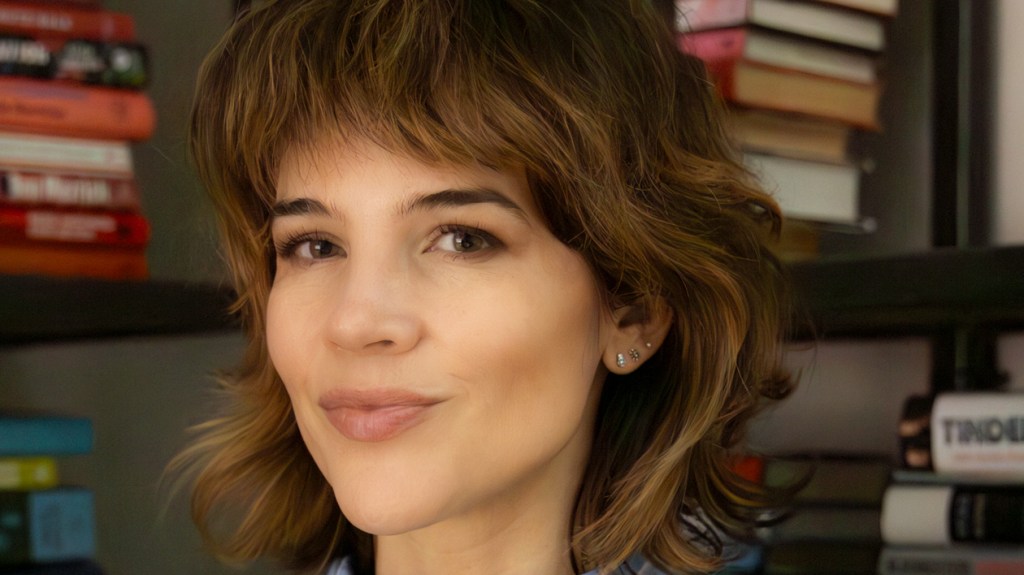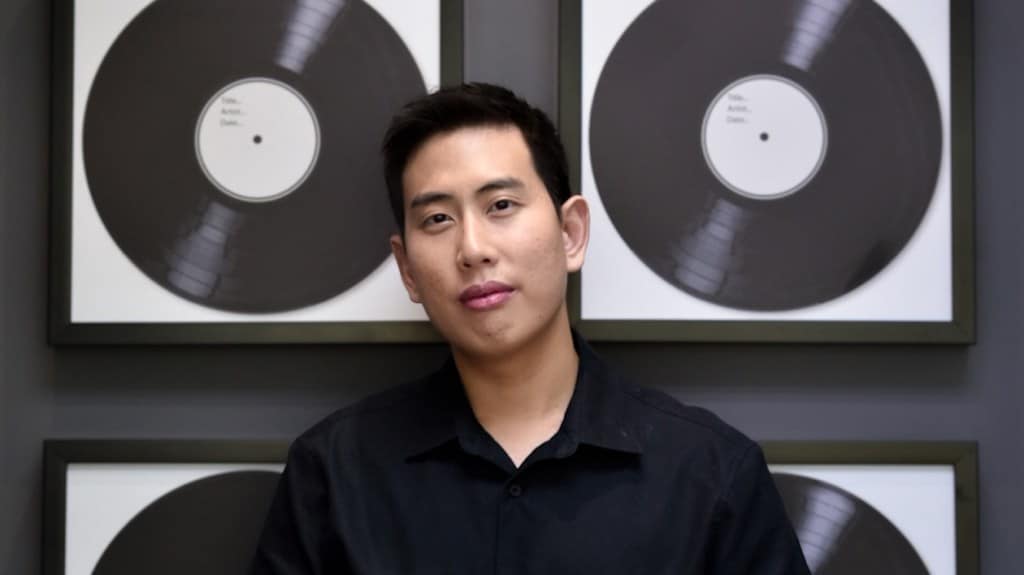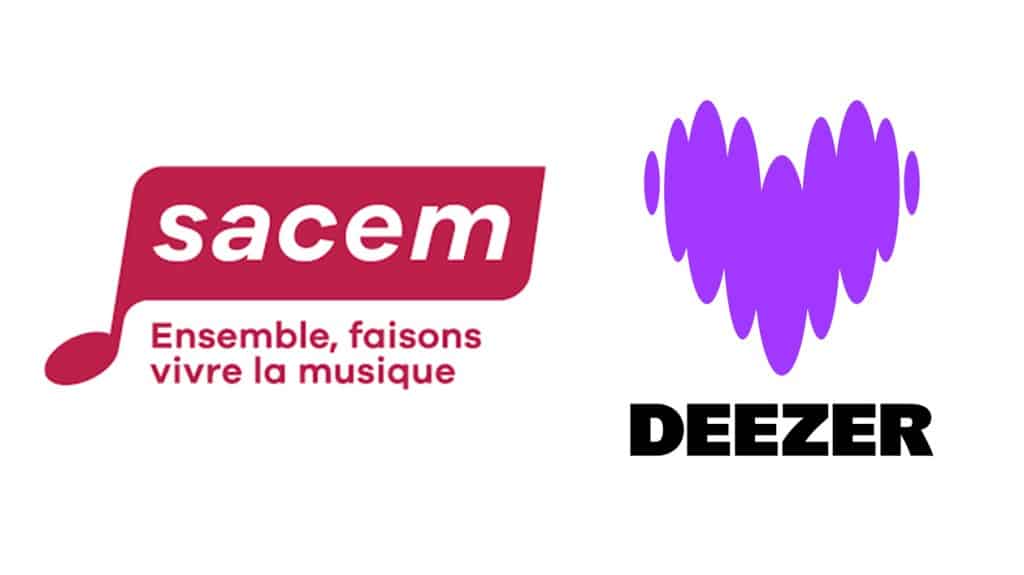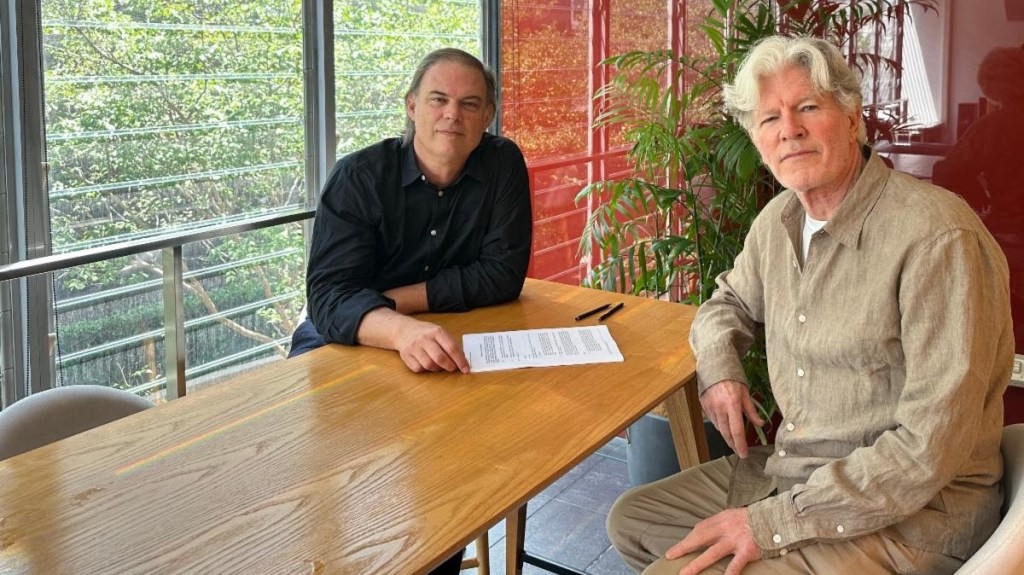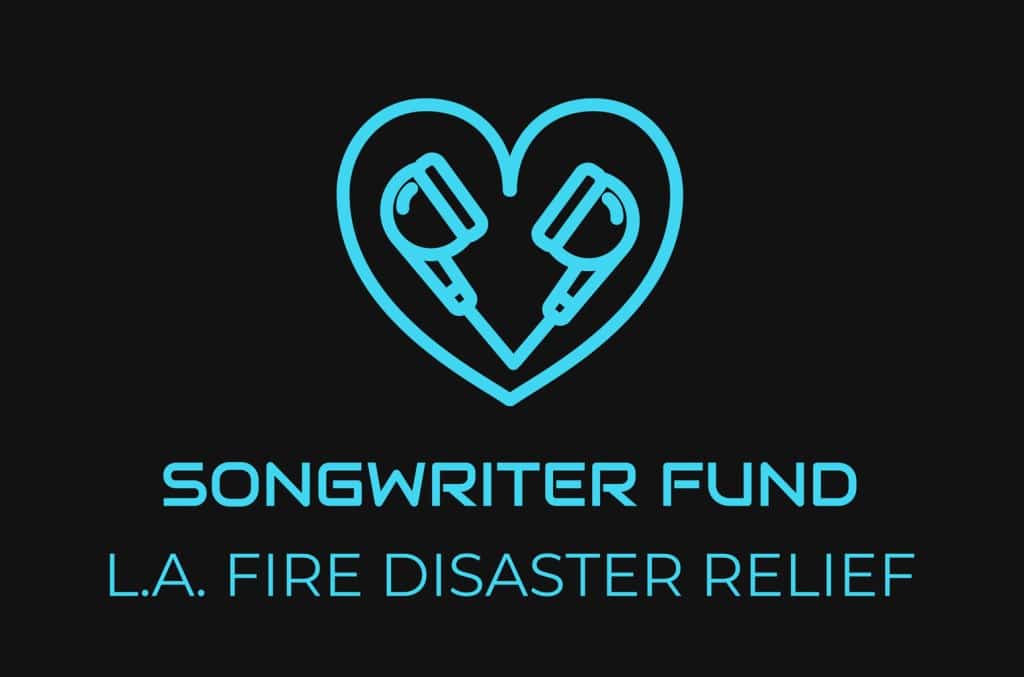Publishing
Page: 9
Spotify and Warner Music Group have signed a new multi-year agreement covering both recorded music and music publishing, following Spotify’s similar deal with Universal Music Group earlier this year. The partnership, announced today (Feb. 6), aims to drive innovation and increase the value of music for artists, songwriters and fans.
The agreement focuses on advancing audio-visual streaming, expanding music and video catalogs, and, notably, introducing new paid subscription tiers with exclusive content bundles. It also reinforces “artist-centric” royalty models that reward artists for attracting and engaging audiences. Additionally, the new publishing deal introduces a direct licensing model with Warner Chappell Music in several countries, including the U.S.
In a statement, WMG CEO Robert Kyncl emphasized the collaboration’s role in expanding the music ecosystem and delivering value to artists and songwriters.
Trending on Billboard
“It’s a big step forward in our vision for greater alignment between rights holders and streaming services,” Kyncl said. “Together with Spotify, we look forward to increasing the value of music, as we drive growth, impact, and innovation.”
Spotify CEO Daniel Ek highlighted 2025 as a pivotal year for Spotify’s innovation, “and our partners at Warner Music Group share our commitment to rapid innovation and sustained investment in our leading music offerings. Together, we’re pushing the boundaries of what’s possible for audiences worldwide—making paid music subscriptions more appealing while supporting artists and songwriters alike.”
During Warner Music’s August 2024 earnings call, Kyncl addressed the relationship between labels and digital service providers and refuted the notion that they are entrenched adversaries. “I know that investor attention has recently been focused on the dynamics between labels and DSPs, with some speculating that we’re adversaries playing a zero-sum game,” he said. “That’s simply not the case. We’re actively engaged with our partners around ways to drive growth for all of us.”
WMG announced its new pact with Spotify moments before reporting results for is fiscal first quarter, which saw a dip in revenue that it attributed to the termination of its distribution agreement with BMG, among other factors. The label group on Thursday also announced that it had agreed to purchase a controlling stake in Tempo Music Investment, a catalog company that owns rights to songs by Wiz Khalifa, Florida Georgia Line and others, in a deal sources say is worth several hundred million dollars.
The National Music Publishers’ Association (NMPA) announced on Tuesday (Feb. 4) that it would issue takedown notices to Spotify for 2,500 podcast episodes on the platform that allegedly contain “unlicensed musical works” from 19 NMPA member publishers.
“Spotify has thousands of unlicensed songs in its podcasts, which it has done nothing to remedy. This takedown action comes as no surprise, we have warned of this issue for some time,” says NMPA president and CEO David Israelite of the takedown notices. According to the NMPA, this is just the start of the takedown requests, and the demands will continue to roll out.
This is the latest of many retaliatory actions the NMPA has taken against Spotify since last March, when Spotify significantly cut payments to NMPA’s members for premium subscriptions. By adding audiobooks into its premium subscription tiers, Spotify argued it qualified for a discounted royalty rate, known as “bundle,” given it would now have to pay for books and music from the same price tag that was once just for music. Israelite said at the time that he would “declare war” on Spotify for this move, and launched a number of actions to fight back.
Trending on Billboard
This included sending cease and desist notices for podcast and video content on its platform that were allegedly infringing on music IP; a legislative proposal, asking for the overhaul of the statutory license; complaints to the FTC and nine state attorneys general; and more. Around the same time, the Mechanical Licensing Collective (MLC) also fought back by filing a lawsuit against Spotify for the move to bundle premium subscriptions, calling it “unlawful.”
On Sunday, Jan. 26, the Spotify bundling issue was brought back into the headlines when Universal Music Group announced a new direct deal with Spotify which included changes both to the recorded music and publishing royalty rates. This marked the first direct deal between Spotify and a publisher since the passage of the Music Modernization Act (MMA), and sources close to the deal say that the agreement included improved remuneration for UMG’s publishing company, Universal Music Publishing Group, and its songwriters.
Still, all other publishers, most of which are members of the NMPA, remain on the baseline bundle rate. The NMPA told Billboard at the time that the deal was “good news for the entire industry” and that “a rising tide lifts all boats, and this signals that Spotify is coming back to the table,” but the organization also added it had no plans to stop any of the actions it had already set in motion against Spotify, and neither did the MLC.
A few days later, on Jan. 29, the MLC’s lawsuit against Spotify was dismissed, with a federal judge saying that Spotify’s move to bundling was supported by “unambiguous” regulations. The judge is not giving the MLC a chance to refile and said the law is clear. Still, if the MLC wants to, it can challenge the ruling at the federal appeals court.
These takedown requests make it clear that the NMPA is not ready to bury the hatchet with Spotify. Among the 2,500 takedown requests are podcasts that allegedly contain unlicensed musical works from publishers like ABKCO, Anthem Entertainment, Big Machine Music, BMG, Concord Music Publishing, Downtown Music Publishing, Hipgnosis Songs Group, Kobalt, Mayimba Music, peermusic, Primary Wave Music, Reservoir, The Royalty Network, Inc., Sony Music Publishing, Spirit Music Group, Ultra Music Publishing, Universal Music Publishing Group, Warner Chappell Music, and Wixen Music Publishing.
Israelite adds: “Podcasts are a growing source of revenue for songwriters and publishers, and it is essential that podcasts provide lawfully produced entertainment. This is not hard to do, and Spotify knows, and has known, how to fix this problem for their users. We hope podcast hosts will stand up for their fellow creators and demand that Spotify do better. Spotify will stop at nothing to undervalue songwriters on behalf of its bottom line. Look no further than its recent bundling scheme and its ill-conceived appeal of songwriters’ rate increase in CRB III. We will not stop until the platform fixes its podcast problem, and all other areas where songwriters are not earning what they deserve.”
Warner Bros. Discovery on Friday (Jan. 31) entered into a joint venture with Cutting Edge Group, an investor and manager of niche media music rights, aimed at generating more revenue from its massive catalog of iconic film and TV songs, including the Harry Potter and Lord of the Rings franchises.
Cutting Edge, which works with wellness music for hotel spas and orchestral renditions of pop songs for shows like Bridgerton, will jointly manage the new business, while Warner Bros. Discovery will keep creative and operational control of the catalog. Global asset manager DWS Group co-invested and sponsored the transaction with Cutting Edge.
Warner Bros. Discovery previously explored selling part of its catalog and hired famed entertainment attorney Allen Grubman to shop it for as much as $1 billion. The launch of a company dedicated to exploiting the catalog of more than 400,000 compositions and song cues signals its potential value is even higher.
Trending on Billboard
The catalog spans almost 100 years of copyrights, including music from the DC Comics movies, Rebel Without a Cause, The Exorcist, A Star is Born, Blade Runner and Shawshank Redemption; and hit TV shows like Friends, Game of Thrones, The Big Bang Theory, Two and Half Men, Succession, The White Lotus, The West Wing, ER, Full House, Sex & The City and Gossip Girl.
Warner Bros. Discovery was formed in 2022 through the merger of AT&T’s WarnerMedia Unit and Discovery Inc. Universal Music Publishing Group will continue to administer the works from Warner Brothers, HBO and Turner Networks, while the works from Discovery and Scripps will continue to be administered by Sony Music Publishing.
“This partnership … is the perfect way to expand access to our unparalleled music library while honoring our long history of strong creative oversight and protecting the integrity of the works and artists,” Paul Broucek, Warner Bros. Discovery’s president of music, said in a statement.
Cutting Edge head Philip Moross said the joint venture was the result of years of work.
“This truly is an iconic assembly of catalogs created over almost a century by one of Hollywood’s original studios and to have the opportunity to invest in and manage this JV alongside WBD is an incredibly exciting prospect for us,” Moross said.
Cutting Edge said last year it secured a $500 million credit facility from Fifth Third Bank, Northleaf Capital Partners and other banks.
On Sunday (Jan. 26), news broke that Universal Music Group and Spotify had struck a direct deal affecting both the company’s recorded music and publishing royalty payments. The recorded music side of the deal marked an important step forward in UMG’s so-called “Streaming 2.0” plan, but the publishing side of it is even more noteworthy.
This agreement represented the first direct deal between a music publisher and Spotify since the passage of the Music Modernization Act in 2019, and it effectively overrides the government-regulated statutory rate for mechanical royalties in the U.S. with a private deal between the two companies. While the jointly issued press release about it was vague on details, sources close to the deal say it offers better pay to UMPG and its songwriters than before, and it signals that Spotify might be ready to bury the hatchet with U.S. publishers overall. But it’s not over yet.
Trending on Billboard
First, the context: In March 2024, Spotify added audiobooks to its platform and reclassified its premium, duo and family subscription tiers as “bundles” in the U.S., a classification streamers can use to pay discounted mechanical royalty rates for musical works. This means that Spotify started splitting the money it once only paid to U.S. music rights holders to pay for both music and books, leading to a sudden and dramatic drop in mechanical streaming royalties. (At the time, Billboard estimated a decrease of $150 million in U.S. mechanical royalties for songwriters and publishers over the first 12 months of the new classification, compared to what they would have made had the tiers never been reclassified.)
This led to a nearly year-long war between the publishers and Spotify, led vigorously by the National Music Publishers’ Association (NMPA), which launched a multi-pronged retaliation against Spotify. In the months that followed, the NMPA sent Spotify cease and desist notices for podcast and video content on its platform that were allegedly infringing on music IP; submitted a legislative proposal, asking for the overhaul of the statutory license; sent complaints to the FTC and nine state attorneys general; and more. The Mechanical Licensing Collective jumped in too, suing Spotify in May for allegedly “unlawfully” changing its subscriptions to bundles.
Then, in a surprisingly-timed announcement, the MLC’s lawsuit against Spotify was dismissed this morning (Jan. 29) with a federal judge saying that Spotify’s move to bundling was supported by “unambiguous” regulations. This timing was good for Spotify. Had the ruling come down before the direct deal with UMPG, the outcry from publishers about it would have been far worse (not to say there won’t still be some outcry). The judge is not giving the MLC a chance to refile the case, saying the law is clear and that amending the accusations would be futile, although the MLC can challenge the ruling at the federal appeals court.
But since this ruling came after the UMPG news became public, publishers now have hope for another way out of the Spotify bundle: direct deals. Although sources close to the situation say they are not aware of any other negotiations going on between Spotify and other publishers to date, the other major publishers now have precedence to argue for similar deals with Spotify. The bigger question is what happens to the small indie players. Will they be subjected to the original bundle rate while the majors get better terms? Does this further the monetary divide between indie and major publishers? UMG is the world’s largest music company and the world’s second largest publisher, after all. Not everyone has that kind of leverage.
The NMPA told Billboard at the time of the UMG-Spotify deal that it was not making any changes to the moves it had already set in motion against Spotify — and neither was the MLC. (Of course, this all came before the MLC’s lawsuit was dismissed.) The NMPA struck a somewhat hopeful tone in a statement about the UMG-Spotify deal, saying it was “good news for the entire industry” and that “a rising tide lifts all boats, and this signals that Spotify is coming back to the table.”
The question remains, however, why Spotify came back to the table with UMG for a new publishing deal in the first place. Spotify had found a way to pay less for songs. Why did Spotify make this concession?
There are a few possible answers to that. For starters, the NMPA had essentially promised that, until Spotify relented on bundling, it would make any future moves the streamer wanted to make difficult. The NMPA’s cease and desist letter cited a Wall Street Journal report that Spotify eventually wanted to offer a “remix” feature to speed up, mash up and otherwise edit sound recordings; the NMPA warned that if Spotify released “any such feature … without the proper licenses in place from our members” it “may constitute additional direct infringement.” Given the NMPA’s overall tone throughout this letter, it seems clear that this was a warning to Spotify that it needed publishers’ cooperation for remix features.
Spotify has also teased other features that would require the platform to get new, voluntary licensing approval from the publishers. In October, Spotify began hosting music videos in 97 countries — but, notably, not in the United States. In November, Spotify CEO Daniel Ek teased the idea of a higher cost ultra-premium tier, including more offerings for top fans such as high fidelity listening and, vaguely, “a bunch of other things.” A few weeks ago, Spotify partnered with The Weeknd to stream his Billions Club Live show exclusively on the platform. By developing a solution with UMPG, and maybe other publishers in the future, Spotify is signaling that it is ready to make nice so that it can push forward with its plans for new products.
It also must be noted that all of these publishing companies, as well as Spotify, are global.
While the bundling situation is specific to the United States, UMPG and other publishers are negotiating with Spotify for licensing deals in multiple markets worldwide where publishers have room to negotiate. With UMG’s direct deal, UMPG and Spotify can move forward with their plans to grow their income and presence in emerging markets — something both Spotify and UMG shareholders are keen on — without wasting time and resources threatening each other in every new licensing conversation.
It turns out that playing nice is helpful for both parties — and the market is rewarding that. Since the announcement of their new direct deal, the share price of both companies saw a positive bump. Even Warner Music Group saw upward movement, since some analysts believe the UMG deal opens the door for other major music companies to do the same.
Though it constitutes a step in the right direction, only time will tell how, and if, other direct deals between Spotify and publishers develop, and if this might grow the chasm between majors and indies.
Sony Music Publishing has promoted Katie Welle to president and head of U.S. A&R, effective Feb. 1. Welle will succeed Walter Jones, who is leaving the company after nearly three years in the role. In her new position, which is based in Los Angeles and reports up to SMP chairman and CEO Jon Platt, Welle […]
Sony Music Publishing has launched its new flagship office in Bangkok, Thailand to expand its development and promotion of Thai songwriters. To helm the new operation, SMP has appointed Tatchara Longprasert as General Manager of SMP TH. Longprasert will report to Carol Ng, President, Asia, Sony Music Publishing.
Kobalt has signed a global publishing administration deal with New Zealand singer-songwriter Tim Finn. As part of their agreement, Kobalt will administer Finn’s entire catalog of songs, including Split Enz’s “I Hope I Never,” “I See Red” and “Six Months In A Leaky Boat,” and Crowded House classics like “Four Seasons In One Day,” “It’s Only Natural” and “Weather With You.” The deal also covers Finn’s expansive solo work, including standouts like “Fraction Too Much Friction” and “Winter Light,” and his critically acclaimed partnership with younger brother Neil in The Finn Brothers.
Warner Chappell Music and Madfun Entertainment have signed a global publishing deal with Grammy-nominated songwriter and producer Sam Ellis. He has co-written an impressive list of No. 1 hit songs, including Lady A’s “What If I Never Get Over You” and Ingrid Andress’s “More Hearts Than Mine.”
Trending on Billboard
peermusic has signed Peruvian rapper/songwriter Jaze to a global publishing deal. A collaboration between peermusic’s U.S. Latin and Argentina teams, Jaze’s deal encompasses both his existing song catalog and future works.
Wise Music Group has announced the sale of its music education division, including MusicFirst, Rising Software, Charanga, O-Generator, and Focus on Sound to private equity firm Achieve Partners. Robert Wise, chairman of Wise Music Group said of the deal: “We are confident that these brands will continue to thrive under their stewardship. At the same time, we can now fully dedicate ourselves to our core mission of music publishing with clarity and purpose.”
Tresóna, a partner to music publishers for licensing scholastic, community and professional organizations, has released liSynce, an easy-to-use synch licensing deal for memorial and funeral service videos. Though not many funeral and memorial homes are obtaining licenses for these activities to date, given previous licensing complexities and lack of enforcement, Tresóna estimates that the market is worth as much as $20 million a year.
Australia’s music industry is mourning the loss of Matthew Capper, the long-serving former managing director of Warner Chappell Australia, who died unexpectedly earlier this month following a surgical procedure.
Capper suffered a ruptured appendix in late December, and could not fight off the infection after the operation, reads a statement from his family.
A stalwart with more than 20 years’ service at Warner Chappell Australia, Capper led the business as managing director from 2010, until his departure in February 2024, part of a company-wide downsizing.
Trending on Billboard
Dan Rosen, president of Warner Music Australasia, remembers Capper as a top-notch executive, a good sport, and a great person. “He cared deeply about the songwriters he represented,” Rosen writes in a message to staff, The Music Network reports, “and his efforts to protect and celebrate their music made a lasting impact on Warner Chappell and the broader music community in Australia. He was above all else, in every interaction, a gentleman.”
In 2005, Capper became the youngest person ever appointed to the AMCOS board at the age of just 28. Two years later, in 2007, he became the youngest to join the APRA board, at 30. He remained a director on both boards until late February 2024, as well as serving as deputy chair of the AMCOS board from 2020-2024.
Friends, former colleagues and business rivals are paying their respects. “I’m completely shocked and saddened to hear of the passing of dear friend and colleague, Matthew Capper. I remember Matthew as an incredibly sincere, principled professional who was passionate about music publishing. He was self-deprecating, always loved a joke and enjoyed spending time with colleagues,” comments Dean Ormston, CEO of APRA AMCOS.
“He had great regard for the work of APRA AMCOS and was very proud of his long connection to the organization and staff. He will be sorely missed by us all, and our thoughts go out to his friends and family at this very difficult time.”
Jenny Morris, chair of APRA, says Capper’s death is a tough one for the industry. “We have had many losses from the music industry family in the last few years, all of which have been sources of great sadness, but Matt’s death has been a huge shock,” she remarks. “Matt was one of the most decent, wise and funny people and I feel very privileged not only to have known him, but to have had his friendship.”Capper, she continues, “worked with genuine care and a great amount of industry awareness on the APRA board, and on more than a few occasions sent supportive messages at just the right time. He was an empath as well.”
Through his career, Capper was a tireless advocate for the music publishers community. He was voted into the position as chair of the Australasian Music Publishers’ Association (AMPAL) in 2013, almost a decade after joining the trade body’s board, in 2004. Capper also represented AMPAL on the International Confederation of Music Publishers (ICMP) board, both as non-executive director and more recently as Treasurer, a position he was especially proud of. His involvement with ICMP extended to chairing its Australasia and Asia Regional Group.
“I was lucky to spend a lot of time with Matthew on the AMPAL, AMCOS and APRA boards, often travelling to Sydney together from Melbourne for meetings,” remembers Jaime Gough, chair of AMCOS. “Matthew was a true professional, a great mentor and sounding board. He was passionate about the songwriter and publisher members we represent, and a vocal advocate for their rights.”
Gough, managing director of Concord Music Publishing ANZ (formerly Native Tongue), continues, “I am still in a state of shock at Matthew’s passing. He had so much more to give to the music industry, many more meals to cook, and will be sorely missed. My thoughts go out to his family and friends.”
The late executive will not have a funeral, per his wishes.
Capper “reached some dizzying heights, and he met a lot of people that he greatly respected, even after meeting them,” reads the family statement. “We think he was quietly proud of his achievements. We certainly were. We’re also certain he thought he had a lot more work to do. Hopefully others have been inspired by him and can continue that.”
In fall 2023, Deezer announced it was adopting an “artist-centric” royalty model with Universal Music Group (UMG) in an effort to better compensate acts with significant followings and the rightsholders who own their recordings. That move, intended to tackle fraud and reduce royalties flowing to what is essentially noise and “functional music” was intended to rebalance a streaming model that some major players believe needs reform. Other major labels followed, as did Spotify, which made different adjustments to its royalty model toward the same end.
On Wednesday (Jan. 15), Deezer and the French PRO SACEM announced a deal to compensate publishing rightsholders the same way. “We started a year and a half ago with UMG and then the other majors,” said Deezer CEO Alexis Lanternier. “And now we’re doing it on the publishing side.”
Trending on Billboard
SACEM’s interest in this idea goes back to an analysis of the potential effects of artist-centric royalty payouts that the PRO conducted last year. “The first thing I wanted was to remove noise from the revenue, especially at a time when dilution is an issue” said SACEM CEO Cécile Rap-Veber, “The second thing is that it helps prevent fraud.”
While Deezer will not remove any music from its platform as a result of this agreement, the service will either demonetize or essentially allocate less royalties to some tracks, by boosting the royalties earned by others. The change, which will take effect soon, could help labels and services better prepare for the age of AI, when music executives worry that online services will be flooded by unpopular, low-value music that cuts into their business with sheer scale. “With AI coming,” Rap-Veber says, “we’re afraid that human creation might be affected.”
Deezer’s specific plans are more ambitious than what it did on the recording side. Like other artist-centric models, artists get a royalty boost for hitting a measure of popularity — in this case, double royalties for songs that are actively searched out or those by artists with 1,000 streams a month from 500 different subscribers.
More interesting, the service will impose what it calls a “user centric cap” that will limit how much the listening choices of any individual subscriber can affect royalty payouts, which will also make fraud more difficult and less efficient. Also, Deezer will completely exclude from the royalty pool tracks that consist of noise and “functional sounds,” such as rain on a roof; instead, Deezer will recommend similar music that it owns, which will not count for payout purposes and thus not take royalties from other rightsholders. (Some of these tracks might not even be considered copyrighted works under EU law, at least on the publishing side. While recording the sound of rain on a roof might arguably involve creative choices, there is no composer in the sense of copyright law.) Deezer will also remove tracks that have not been streamed in a year.
Tim Finn, the celebrated New Zealand singer and songwriter, has signed a worldwide publishing deal with Kobalt.
Announced this week, Kobalt will administer Finn’s entire catalog of songs, which includes Split Enz’s “I Hope I Never,” “I See Red” and “Six Months In A Leaky Boat,” and “I Got You,” which reached No. 53 on the Billboard Hot 100 in 1980. Also included is Crowded House’s “Four Seasons In One Day,” “It’s Only Natural,” and “Weather With You,” plus solo works.
“We are thrilled to announce this new partnership with Tim Finn, a legendary figure in the world of music,” comments Simon Moor, managing director of Kobalt for the APAC region. “From his groundbreaking work with Split Enz to his contributions to Crowded House and his illustrious solo career, Tim has consistently showcased his incredible songwriting talent.”
Adds Finn: “Simon Moor and his team at Kobalt are energized music lovers. I’m excited to see what we can do together. It feels like a new chapter is waiting to be written for me and my songs.”
Trending on Billboard
Finn formed Split Enz in his homeland in the early 1970s. By the time Split Enz called it a day in December 1984, the band had banked a treasure chest of hits, including “Message to My Girl,” “My Mistake” and “Dirty Creatures”.
At that stage, Finn had already launched his solo career. His debut from 1983, Escapade, cracked the Billboard 200, peaking at No. 161.
Finn briefly joined forces with his younger brother and former Split Enz bandmate Neil on the third Crowded House project, Woodface, released in 1991. Woodface hit No. 82 on the Billboard 200.
A told, four Split Enz albums crashed the U.S. albums tally and the band was inducted into the ARIA Hall of Fame in 2005. Crowded House’s elevation came in 2016.
Finn’s latest work has included songs and soundtracks for film, television and musical theater, including Ladies in Black, for which he received a Helpmann Award for best new Australian work. His most recent solo album, 2021’s Caught by the Heart, is a collaboration with Roxy Music guitarist Phil Manzanera, who produced the Split Enz album from 1976, Second Thoughts.
Boasting 13 global offices, Kobalt serves over 1 million songs, representing the likes of Roddy Ricch, Max Martin, Karol G, Andrew Watt, Stevie Nicks, Phoebe Bridgers, The Lumineers, Foo Fighters, Paul McCartney and others.
The Songwriters of North America (SONA) Foundation has relaunched its Songwriter Fund to provide emergency relief for songwriters and composers impacted by the wildfires in Los Angeles. To qualify, songwriters should visit the organization’s website and provide a few examples that demonstrate professional-level work as a musician, prove they were based in and around the […]

 State Champ Radio
State Champ Radio 


